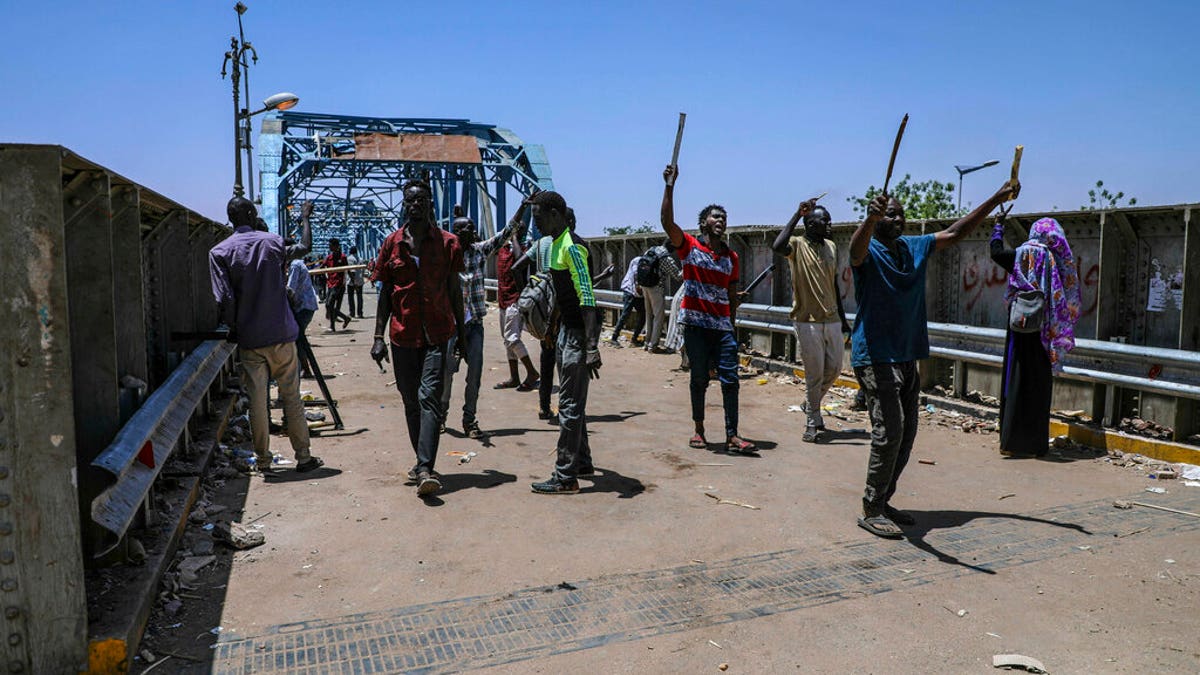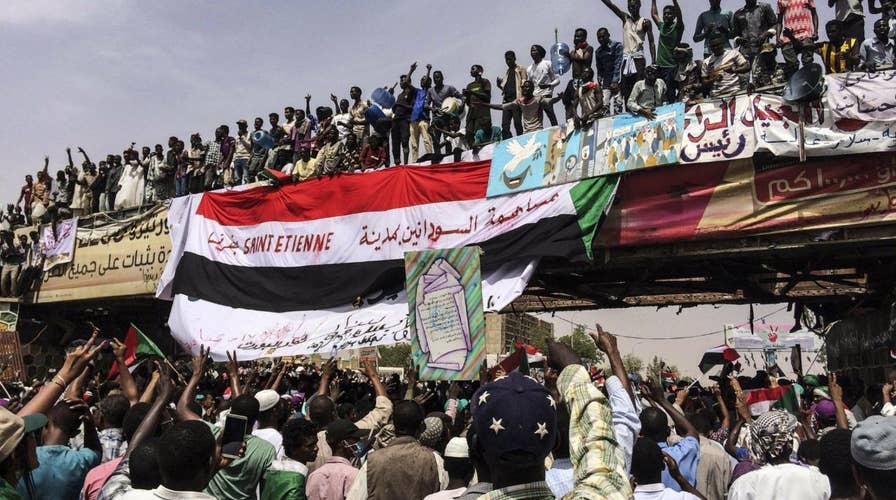Sudan protest leaders urge people to remain in the street amid a military coup
Sudan protest leaders are urging people to remain in the streets amid a military coup that has left 16 people killed in the last few days.
Sudan's military leaders have announced that an agreement had been reached with the opposition for a three-year transition to a democratic, civilian administration.
Khartoum has been plagued by protests in recent weeks, despite the opposition’s success in ousting long-running dictator Omar al-Bashir from power last month, with locals demanding the military hand full control over to civilian rule.
But at a joint press conference on Wednesday, representatives from both the ruling Transitional Military Council and an alliance of protest groups declared that they expected to sign a final deal “within 24 hours.”
BROTHERS OF OUSTED SUDANESE RULER ARRESTED, BUT PROTESTERS REFUSE TO LEAVE MILITARY HEADQUARTERS

Protesters walk towards the sit-in protest outside the Sudanese military headquarters, in Khartoum, Sudan, Tuesday, May 14, 2019. (AP)
Although exact details of the deal have not yet been made public, it is expected that both sides will adhere to having a three-year transitional administration – which includes an opposition-majority parliament.
The three-year transition period is considered a compromise between the military’s insistence for a two-year period while protesters wanted four years to ensure they had the necessary time to prepare.
Lt. Gen. Yasser al-Atta, a military spokesman, said the two sides will spend the next six months negotiating peace deals with rebel outfits across the country, who have long been at odds with the central government.
The sticking point of precisely who will take the reign over Sudan, which had been under Bashir’s iron fist since 1989, are not yet clear. The generals who took power from Bashir have insisted that they should be in charge, while distrustful protesters demand nothing less than civilian leadership.
HOW A SURVIVOR OF A SOUTH AFRICAN 'FARM MURDER' IS FIGHTING BACK
Protesters have vowed to remain camped outside the capital building to ensure that that the final 24-hour period of talks is heeded with an acceptable deal that paves the wave for real change and civilian control.
As for Bashir – who is wanted by the International Criminal Court for war crimes and crimes against humanity related to Darfur – his exact location has not been confirmed, despite reports he was transferred from the presidential palace to a high-security prison.
He is also facing internal charges of inciting violence that lead to the death of protesters earlier this year, and is under investigation over accusations of money laundering and aiding terror groups.









































